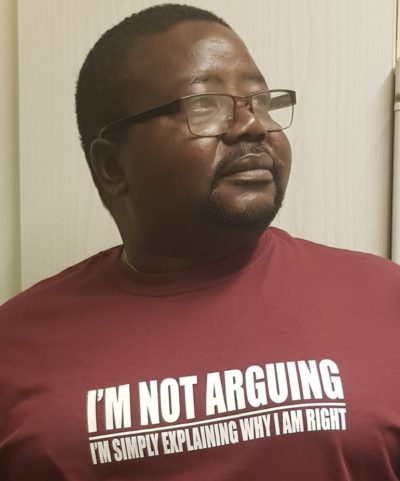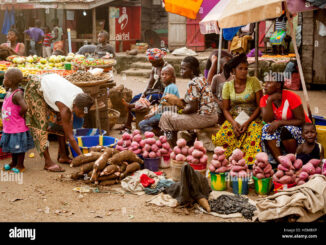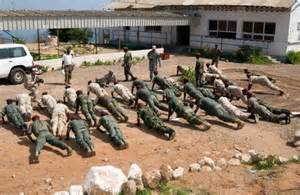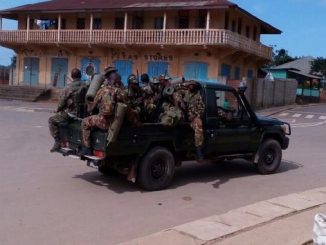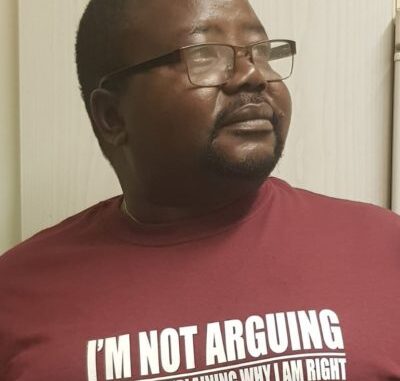
The Existence of Parliaments and Elections Alone Don’t Define Democracy.
Many would have expected the conduct of the June 23rd elections in Sierra Leone to seal the political wrangling, gerrymandering, and politicking until another cycle. Some hoped that it would have ushered in a new government or given a mandate for unfinished business. It is beginning to feel that this is not only a continuation but a departure of sorts from the usual modus operandi that follows general elections in Sierra Leone.
It is an open secret that the elections were fraught with controversies, allegations of rigging, human rights abuses, and many more unsavoury outcomes. This has required the intervention and shared opinions from across the International Community. We have seen the US pause the funds for the Millenium Challenge Corporation (MCC) and issued statements about imposing visa bans on those “believed to be responsible for, or complicit in undermining democracy in Sierra Leone, including through the manipulation or rigging of the electoral process; intimidation of voters, election observers, or civil society organizations through threats or acts of physical violence; or the abuse or violation of related human rights in Sierra Leone.”
I don’t have the foggiest idea on the Sierra Leone constitution or matters relating to constitutional or judicial gymnastics. However, it is safe to say that there is a route for matters arising from elections, which is enshrined in our constitution. This route was available to the APC party, like it has always been in the past for other opposition parties. Did we utilise this route for recourse or take the highway for a militant mindset? It is one thing to profess protecting, promoting, and pursuing the rule of law. But is it an entirely different thing to take the same rule of law into our hands?
Does history like to repeat itself?
While in the US to attend the United Nations General Assembly, President Bio dropped a political nuclear bomb during a town hall gathering. He disclosed that the US asked him to stop the ECSL from announcing the election results, following which Bio claims to have pleaded his non-interference with the statutorily independent body. He was quick to admit that elections everywhere attract controversies, and cited the current political impasse that has been threatening the rule of law in the US since the 2020 elections, courtesy of Donald J. Trump.
Since the APC opted to not participate in the government, many SLPP sympathisers have been quick to reference the 2012 elections, during which the SLPP accused the National Election Commission (NEC) of bias in favour of former President Koroma’s APC. The party Secretary-General then, Sulaiman Tejan-Sie spoke of a “catalogue of malpractices and the apparent unwillingness of the NEC to address them”. The SLPP chairman John Oponjo Benjamin accused the APC of “misuse of incumbency “and NEC of allowing voters without ID cards to vote. The SLPP party stated in their pamphlet then, that those “unfortunate incidents not only have the potential to undermine the credibility of the election results but have the tendency to derail our effort to consolidate our hard-earned peace”. History does have a sense of humour after all.
In 2012, UN Secretary General Ban Ki-Moon congratulated Sierra Leoneans for a “peaceful and largely orderly elections” and said at the time that “the high voter turnout and the remarkable calm displayed by the country’s citizens as they cast their votes are a clear manifestation of their desire for peace, democracy and development”. Nevertheless, he warned political leaders and supporters to accept the will of the people and put their country above any other interests so as not to jeopardise Sierra Leone’s hard-won peace”. The head of EU Electoral Observation Mission in Sierra Leone Richard Howitt commended NEC, that “overall, we find that NEC has been independent and impartial”. However, he acknowledged that the elections had been conducted on an “uneven playing field”, with the APC and SLPP enjoying 61 % and 18% of airtime on SLBC respectively.
The Carter Centre urged parties and candidates that in the event of any challenges or complaints, to follow prescribed legal channels as laid down in the constitution and Public Elections Act of 2012 for the resolution of any dispute related to the elections. Under the Public Elections Act, any electoral offences will be considered by the Electoral Offences Court and investigated by the Sierra Leone Police, and any challenge to the results of the presidential election should be filed with the Supreme Court within seven days of the announcement of the results. It is incumbent on political parties and candidates to produce evidence of any alleged malfeasance, the Carter centre stressed.
So, did the APC party have reasons to accuse ECSL of malfeasance? Yes. Did the APC party have reasons to accuse the SLPP of vote rigging? Yes. Did the APC party complain and challenge the election results? Yes. Did the APC party follow prescribed legal channels as laid down in the constitution and Public Elections Act of 2012 for the resolution of any dispute related to the elections? No. Did the APC party file its challenge to the results with the Supreme Court within seven days of the announcement of the results? No. Did the APC party and its candidates produce evidence of any alleged malfeasance to the courts? Dis Kompound Ya so, some people still dae wait.
According to reports close to the party, the APC refused to take the legal route because it does not have confidence in the courts. Within reason, the party has demonstrated little or no confidence in our judicial system. That’s a turn-up for the books. So, how many people will argue with that? But as we all know, that has been the general perception, I repeat “PERCEPTION” of the courts for many people and for so long. It does not matter which party is in power, many perceive our courts and law enforcement as the unofficial long arms of any sitting government. The APC’s stance to boycott government might not be everyone’s cup of tea. However, it points to an urgent requirement for one of the very foundations of our democracy and the rule of law, that our judiciary must be strengthened and released from political interference. Our democracy can only survive on the strength of our institutions, to compensate for the lack of brilliance in our leaders.
As we go to press, reports claim that the APC is planning to initiate disciplinary proceedings against its duly elected members of parliament Mohamed Bangura and Alfred Thompson, for representing their respective constituencies in parliament. Sounds like a crime against humanity. By boycotting parliament and not taking the legal route for recourse, has the APC taken the law into its hands? With the APC candidates boycotting parliament and not representing their constituents, have they put the country above other interests or vice versa? As a political party in waiting, what will the APC do if the opposition boycott if, and when their leader duly signs the tenancy agreement at State House? What would they expect from the opposition if, and when President Bio or a member of the SLPP gets an eviction notice from State House? How do you defend the rule of law if you don’t follow, promote, or protect the rule of law? What is the best post/zip code for the rule of law? The courts of the land.
Has the APC become over-reliant on the US?
In the absence of any legal or domestic route to address the political impasse in our country, are we witnessing an increasing over reliance on the US? Against the backdrop of unprecedent hard times in the country, increasing protests and civil disobedience are understandably becoming a fashion statement. Many see it rightly or wrongly as the machinations of the APC. Even though the APC has officially made strenuous efforts to detach itself from these protests, many struggle to disentangle the two; thanks to the hitherto APC’s sworn declaration to make the country ungovernable and the ongoing policy of non-participation in government. The rumour mill has it that both parties plan to engage in an entente cordiale soon. But can one shake hands with clenched fists?
There are some members in the APC party including Joseph F. Kamara (JFK), who advised the party to seek redress in the courts. His reward for having the audacity to suggest political sanity as a prescription was vilification. Is the APC at risk of engendering a leadership vacuum in the party? In the absence of any official parliamentary involvement, and with social media suggestively becoming the main means of communication between the party and its followers, is the APC putting itself at risk of being a social media party? How far is the APC party ready to take this militant state of mind? Alright o. Despite the benefits of critical mass for communication, Facebook and Instagram, Tik Tok, etc. are not the best of official mouth pieces.
If President Bio’s claim of political interference in the domestic affairs is anything to go by, and despite credible reasons for the APC to question the credibility of the elections, where does that place US foreign policy? Its so-called interference might have nothing to do with the interests of the APC per se, but as a self-proclaimed responsibility to ensure and protect democracy and rule of law in our country. Hallelujah. While the majority will surely welcome such “interference” from the US to sanitise our political landscape and democracy, there are those who might wonder whether the US is best qualified to lecture others on issues like police brutality. Police brutality is abhorrent under any name or colour.
By alleging that the US asked him to stop ECSL from announcing the results, is President Bio questioning US neutrality? With APC leaning media outlets referencing outgoing and incoming US ambassadors’ press releases, many might wonder who controls the narrative and direction of travel. Haile Selassie once said “The nations of Africa, as is true of every continent of the world, from time-to-time dispute among themselves. These quarrels must be confined to the continent and quarantined from the contamination of non-African interference”. We know that America has a special horror of giving up control and letting things happen in their own way without interference.
So, where does such perceived reliance on the US leave the APC in the Sahel conundrum?
Comparisons between the APC and the Sahel conundrum might seem far-fetched, if not preposterous. Lest we forget, the uprising in the French speaking countries appear to be a culmination of years of political and economic exploitation between France and its former colonies. The coups d’états have exposed the draconian treaties France signed with its colonies as pre-requisites for independence. Although detestable, these coups have received continental approval as a leap in the right direction for black consciousness, the emancipation and decolonisation of the African mind. Others see the coups as a rejection of Africa’s puppet leaders.
What next and where next for our country?
Sadly, we are now witnessing the erosion of the rules –based order that governed how our political system operated. It has been completely debased and objective rules have been replaced by tribalism and subjectivity that make any sort of national consciousness about how things should run all but impossible. Our politics has been contaminated with inflammatory passion and selfish interests. We now have two elephants fighting, with only the grass which suffers. We cannot have these two political demagogues hold to people to ransom. Under normal circumstances, political differences should generate healthy debates. Sadly, our dialogue has become hateful and violent. Sierra Leone needs to move to the next significant phase of serious political dialogue. This means that both sides should be willing to change, for dialogue cannot exist without humility. Politics should be about solutions and we should not forget that our future rests on what we do in the present. What these two parties are serving the people is not working.
Don’t forget to turn the lights off when you leave the room.
Abdulai Mansaray.

